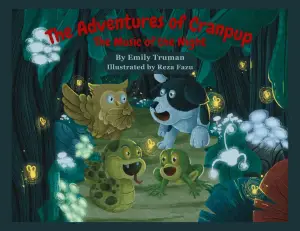I recently dove into Sharks in the Time of Saviors, Kawai Strong Washburn’s debut novel that has already made waves, winning the prestigious 2020 PEN/Hemingway Award and earning recognition as one of Barack Obama’s favorite books of the year. As someone who has a passion for family sagas enriched with cultural folklore, I was instantly intrigued by the blend of Hawaiian mythology with the heart-wrenching story of the Flores family. The premise of a boy, Nainoa, being rescued from the ocean by sharks and hailed as a symbol of favor from ancient gods was just too captivating to resist.
Right from the start, I found myself entranced by the lyrical writing style Washburn employs. It’s rich, almost poetic, and it proves essential in bringing the lush, vivid backdrop of Hawai’i to life. The emotions are palpable; you can feel the weight of grief, love, and the struggle between heritage and personal aspirations. The characters are well-drawn, and their personal journeys resonated deeply with me. Each sibling—Nainoa, Dean, and Kaui—offers a unique perspective on family dynamics shaped by both divine and earthly trials.
One standout aspect for me was the exploration of identity and belonging. The family’s grappling with Nainoa’s supernatural gifts exemplifies the clash between tradition and modernity. It’s both beautiful and tragic, as their supposed divine favor amplifies their existing fractures, ultimately leading them toward chaos. I found myself engrossed in their quest for understanding, a sentiment shared by many readers who praised the narrative’s depth.
However, the novel isn’t without its drawbacks. A few readers noted that the pacing can sometimes feel uneven; there are moments of reflection that beautifully deepen character insights but can also stall the narrative momentum. I agree with this observation. While I cherished the introspective segments, I did find some chapters dragging on, making it harder to maintain the same level of engagement in the latter part of the book.
Another critique that surfaced in various reviews was the somewhat fragmented nature of the story. The shifts between characters, locales, and time periods can leave a reader feeling slightly disoriented. While I appreciated the complexity of the family’s interconnected stories, there were times when I yearned for a more linear approach, which might have helped clarify their overarching journey.
Though the narrative can stray at times, the emotional stakes are high and ultimately rewarding. By the end, when the family’s trials culminate in heart-wrenching revelations, I felt both satisfied and contemplative. The way Washburn intertwines themes of faith, magic, and family legacy was evocative, reminding me of my own reflections on heritage.
Overall, Sharks in the Time of Saviors is a remarkable debut that sits on the precipice of magic realism and deep family drama. Despite some pacing issues and narrative fragmentation, it’s a meaningful exploration of identity and the ties that bind us. I thoroughly enjoyed my time with the Flores family, and I would recommend this book to anyone interested in rich storytelling that blends cultural elements with universal human experiences.
In conclusion, I would give Sharks in the Time of Saviors a solid four out of five stars. It captivated me with its lyrical prose and profound themes, even if it occasionally stumbled in execution. I look forward to seeing what Kawai Strong Washburn crafts next!








